Learn : Food & Nutrition
The Right Weight Loss Diet for Your Dog
Excess weight is one of the most common health issues facing dogs worldwide. Industry data indicates that nearly 60% of pets are overweight or obese, which can lead to serious complications, including shortening a dog’s lifespan and reducing the quality of his day-to-day life. Thankfully, being overweight is also one of the more treatable health issues. With a mix of dietary and lifestyle changes and a commitment to sticking with it, you can get your dog back to a healthy weight.
Change His Lifestyle, Not Just His Food
The fundamental changes most pet parents need to make are to increase awareness of the factors that impact their dog’s weight and to increase persistence in sticking to a healthier lifestyle overall. While changing what and how much we feed our dogs is important, most weight issues are not solely the result of generous meals. As in humans, avoiding an unhealthy yo-yo weight-loss/weight-gain cycle means committing not broader lifestyle changes, not just tweaking what goes into the dog food bowl.
While the specifics may shift as a dog progresses from weight loss to weight maintenance (once he achieves his ideal weight goal), the overall lifestyle approach remains constant.
Depending on how overweight he is, his overall body structure and size, his current activity level, and any complicating factors, a weight loss program for your dog can take anywhere from a few months to most of a year. With patience and commitment, the pounds should come off.
Determine His Goals
It is important to set realistic but productive goals for your dog. Because weight loss is a sustained effort, having a target that you track over time can let you know when and if changes might be necessary. If progress is too slow, more intervention may be necessary. If the weight is coming off quickly but your dog seems irritable or unhappy, easing things up can keep him on track and keep the family dynamic intact.
Your veterinarian knows more about your dog than anyone, including his individual breed or build characteristics and any specific health issues that could affect your weight loss plan. Be sure to ask if there are any metabolic or endocrine disorders that could affect how your dog is processing his food, or any existing joint or orthopedic concerns that might limit exercise.
To begin setting goals, work with your vet to determine your dog’s ideal weight based on his breed and build using his Body Composition Score (BCS). Generally, a good goal for canine weight loss is about .5 to 2% of total body weight per week. While a more aggressive goal may drop weight more quickly, it can increase the risk of health complications and the potential for weight rebound when a more normal diet is resumed.
To achieve this weekly goal, you need to design a plan that balances food intake with energy burned both through normal metabolic processes and added exercise. A good place to start is by calculating your dog’s Resting Energy Requirement (RER)--a guideline that estimates a dog’s caloric need based on his ideal weight (NOT his current weight).
RER = 70 X (ideal weight in kg)0.75
Unless you plan to engage your dog in extremely rigorous exercise (hours of sustained high-energy work daily, not just a long walk around the neighborhood or a normal hike), the recommended calorie level to support safe weight loss is simply the calculated RER. When you get close to his ideal weight, your veterinarian may recommend a calorie level closer to 1.2-1.3 X RER.
Once the diet has started, it is important to keep an eye on progress. For small dogs, weekly weigh-ins at home are easy if you have a bathroom scale. Just weigh yourself, and then weigh yourself holding your dog, and note the difference. For larger dogs, a quick visit to your vet for a weigh-in every couple of weeks is sufficient. Ask your vet whether any other periodic tests are needed as you continue on with the plan.
Dietary Mix for Weight Loss
Choosing the Food
The big question most have when it comes to weight loss diets is whether or not a specially-designed therapeutic diet is necessary. The goal of course is to restrict calories while meeting all of the dog’s nutritional needs. If you are already feeding your dog a “complete and balanced” dog food (whether it is kibble, canned, raw, or fresh), he is likely getting all the nutrients he requires and should continue to do so even on a semi-restricted diet.
For weight loss, dog food higher in lean proteins and somewhat lower in fats and carbohydrates can be beneficial. Protein is especially important for maintaining muscle mass in a restricted-calorie diet, and for older animals that tend to suffer weight gain more frequently.
When making a meal plan, be sure to factor in any treats you plan to give, as they add to the daily caloric intake even if they are small. Every calorie counts, especially for small canines where a small treat could still be a significant portion of its daily calorie needs. Rewards are good, but build them into your plan so you can be sure to stay on-target for overall calories.
Add-Ins To Boost Palatability
If your dog is losing weight and maintaining health but still seems hungry constantly, you may want to consider incorporating ingredients that include additional water and fiber without unnecessary calories. This adds bulk to the bowl and may satiate hunger more effectively. Fiber-rich vegetables like broccoli, celery, green beans and cauliflower are excellent add-ins that do not wreck the diet.
Smaller, More Frequent Meals May Help
Some studies indicate that feeding once per day, even on a restricted-calorie diet, may be a risk factor for obesity. Rather than planning just one large meal, consider breaking the daily calorie goal into several smaller meals. These smaller meals tend to burn more calories over the course of the day, and may help curb hunger better than once-per-day feeding.
Patience and Persistence Lead to Success
If your dog has more than a few pounds to lose, it is going to take time, and we know how hard it can be to not give in to his begging. Still, by making smart changes to his diet and making sure he is getting enough exercise, you are doing the right things to extend his life and your time together. Stick with the plan and soon enough the weight should come off, and you will both be happier for it.


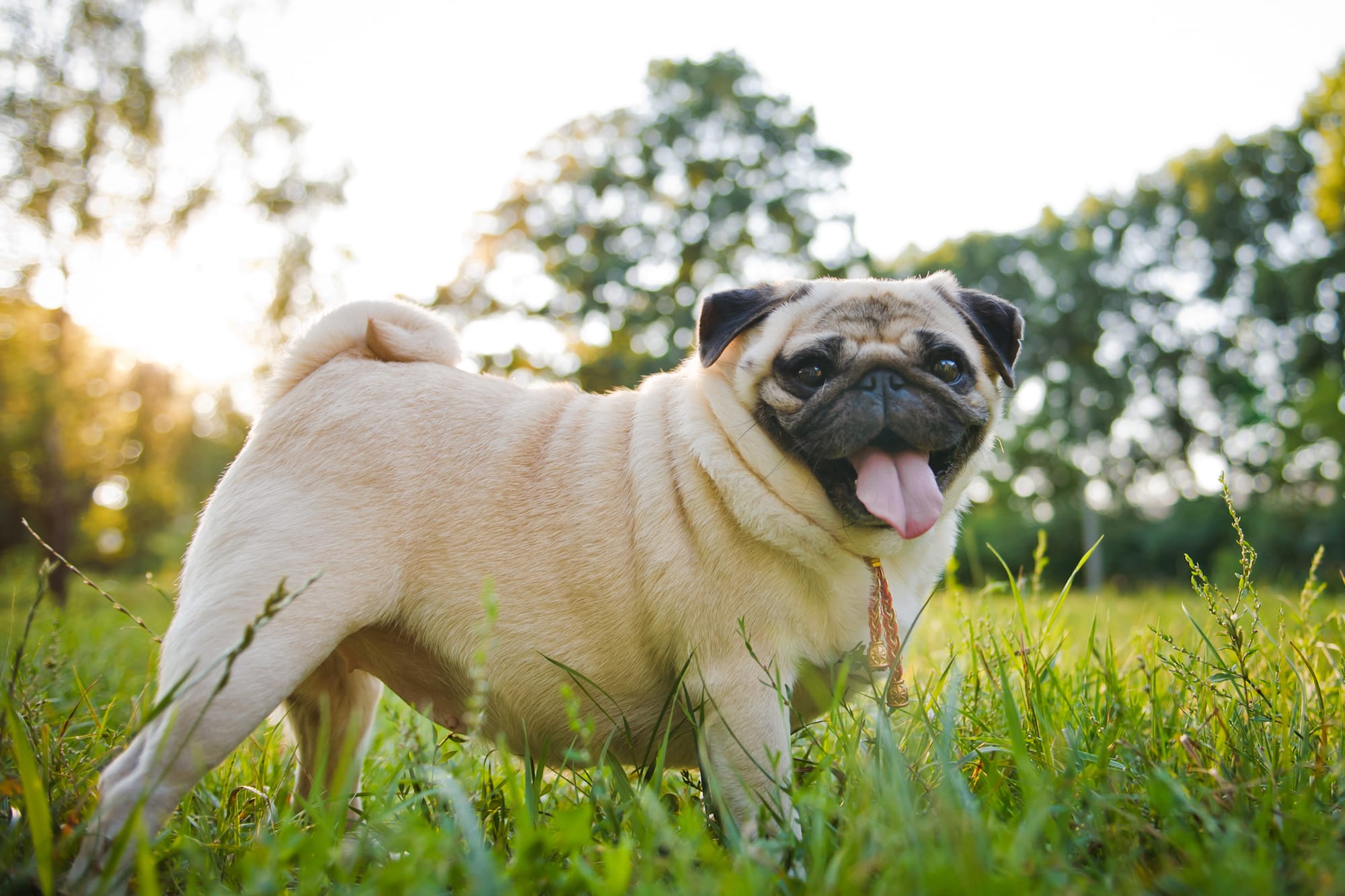
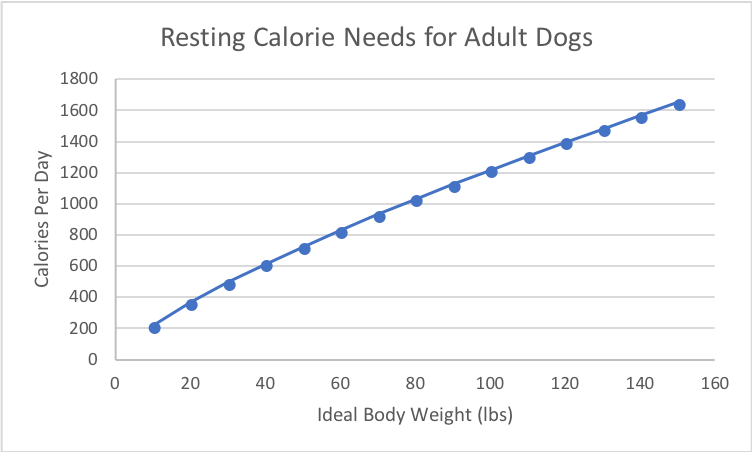
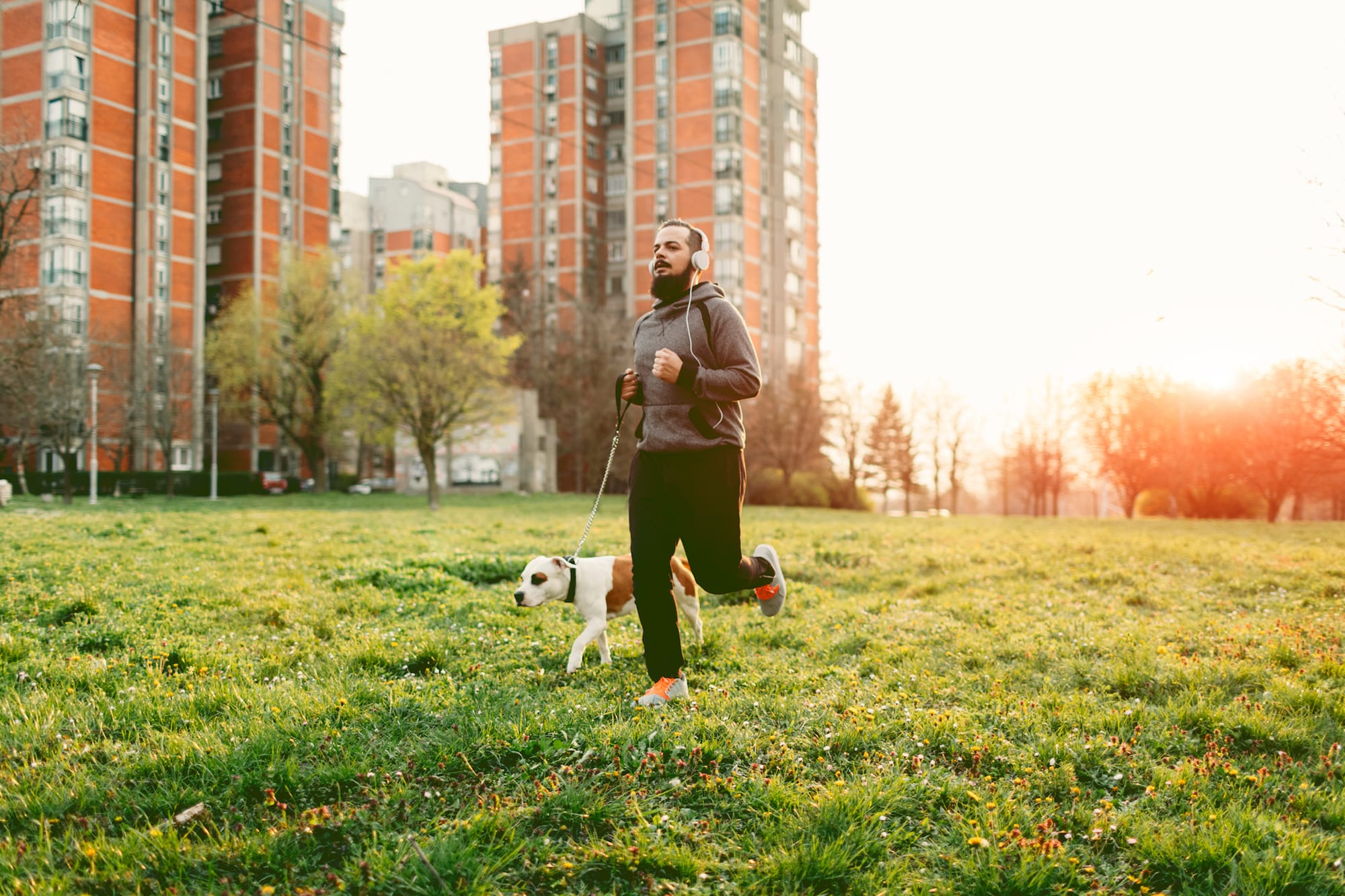 What's A Healthy Weight For My Dog?
What's A Healthy Weight For My Dog?
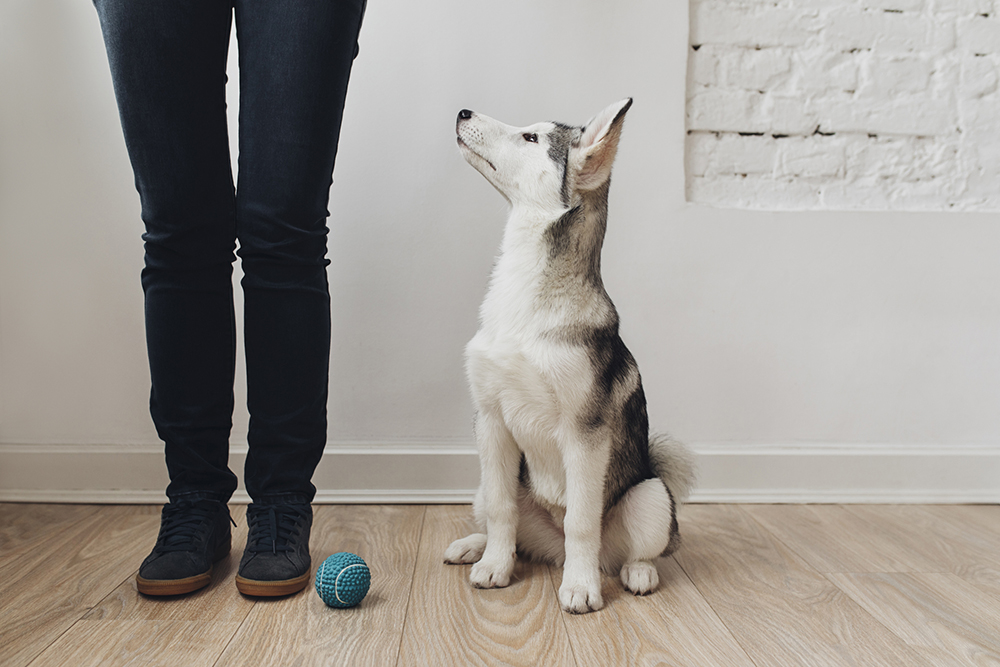 Dog Training Basics
Dog Training Basics
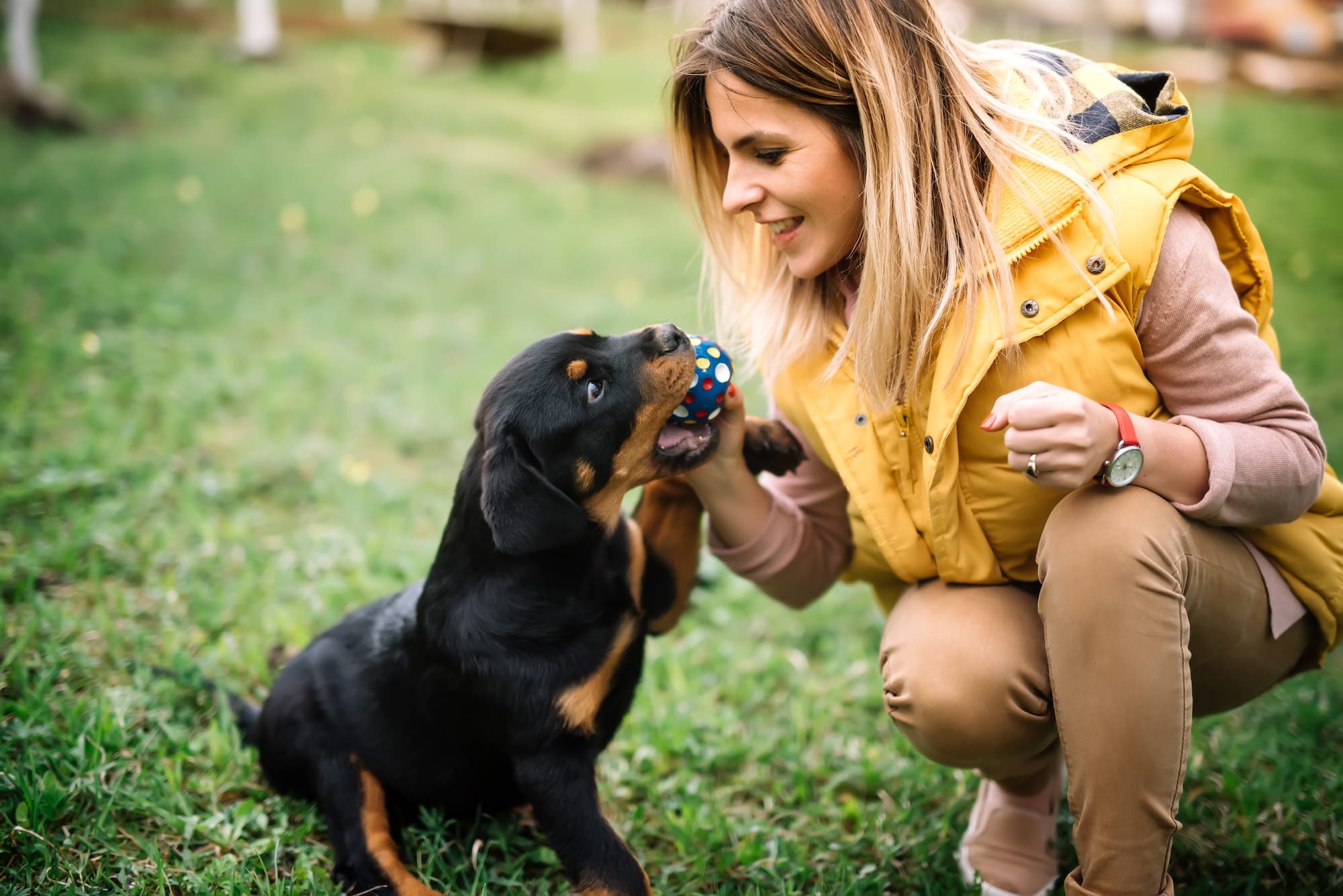 Exercise Tricks For Your Dog
Exercise Tricks For Your Dog
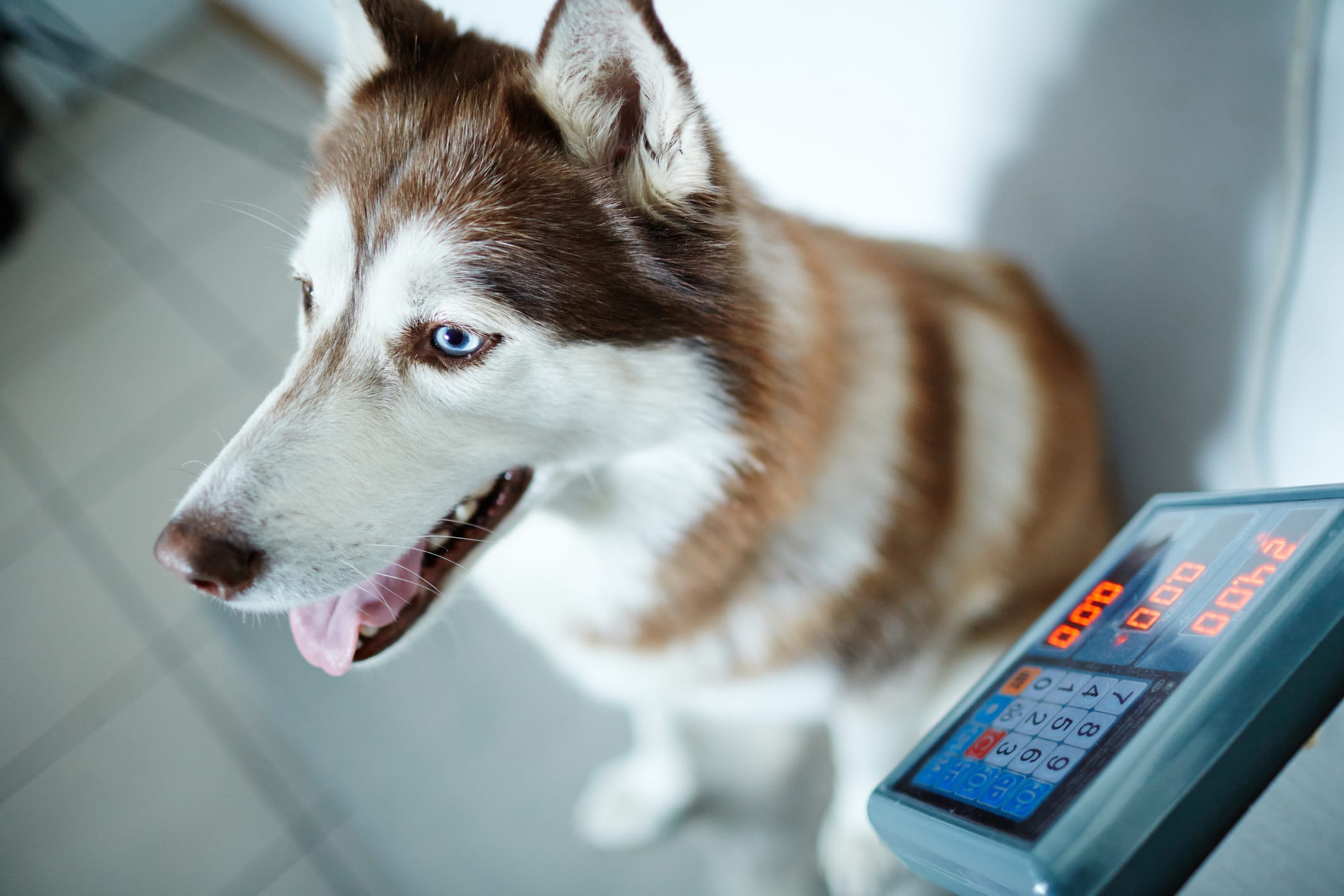 Dog Weight Management: Gaining and Losing Pounds Safely
Dog Weight Management: Gaining and Losing Pounds Safely
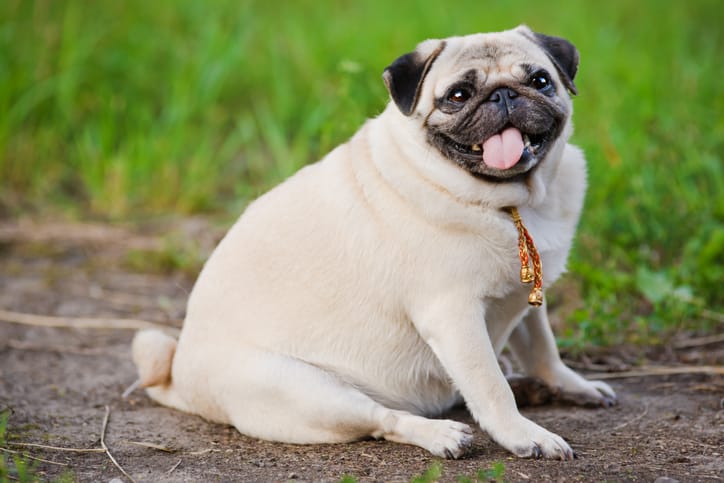 Obesity & The Microbiome
Obesity & The Microbiome